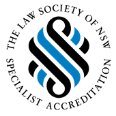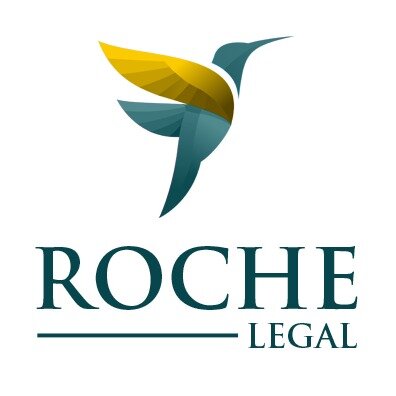Best Dangerous Product Lawyers in Australia
Share your needs with us, get contacted by law firms.
Free. Takes 2 min.
Or refine your search by selecting a city:
List of the best lawyers in Australia

About Dangerous Product Law in Australia
Dangerous product law in Australia covers regulations and legal standards connected to products that pose potential risks to consumers. This area of law focuses on consumer protection and safety, addressing the obligations of manufacturers, importers, distributors, and retailers to ensure their products are safe for use. Products can be classified as dangerous due to defects, poor design, inadequate instructions, or manufacturing faults. Legal frameworks set forth by the Australian Competition and Consumer Commission (ACCC) and other governmental bodies help enforce these standards to prevent harm and prosecute violations.
Why You May Need a Lawyer
Several situations may warrant seeking legal advice regarding dangerous products:
- If you or someone you know has been injured by using a defective product.
- If your business is involved in the manufacturing, importing, or selling of products and you need guidance on compliance with safety standards.
- When you require assistance in navigating product recalls or addressing potential liability claims.
- If you're facing charges or fines due to allegations of failing to meet safety regulations.
Legal expertise is crucial to protect consumer rights, manage risks, and ensure compliance in this complex field.
Local Laws Overview
Australian dangerous product law is primarily governed by the Australian Consumer Law (ACL), which is part of the Competition and Consumer Act 2010. Key elements include:
- Product Safety Standards: The ACL mandates that products must be safe for use and failure to adhere can lead to penalties and recalls.
- Product Bans: Products that pose significant risks to consumers may be subject to bans.
- Mandatory Reporting: Suppliers must report incidences where products have caused serious injury, illness, or death.
- Recalls: Businesses are required to effectively recall unsafe products and notify the public.
Frequently Asked Questions
What constitutes a dangerous product?
A product is considered dangerous if it poses an unreasonable risk of harm to consumers due to design flaws, manufacturing defects, or inadequate warnings and instructions.
Who can be held liable for a dangerous product?
Liability can extend to manufacturers, importers, distributors, and retailers who fail to ensure the safety of their products.
What should I do if I am injured by a dangerous product?
Seek medical attention, document the injury and product details, and consult a lawyer to discuss potential claims or legal actions.
Is there a time limit for making a claim for injuries caused by a dangerous product?
Yes, time limits, or statutes of limitations, apply. They vary by circumstance, so legal advice is recommended to ensure timely action.
How can I determine if a product has been recalled?
The ACCC regularly publishes recall notices on its website, which you can check for updated information on product recalls.
What is the role of the ACCC regarding dangerous products?
The ACCC sets safety standards, issues warnings, enforces compliance, manages recalls, and acts as a regulatory body to protect consumers from unsafe products.
Are there penalties for companies that fail to comply with product safety regulations?
Yes, penalties can include fines, mandatory recalls, compensation orders, and legal action, which can substantially impact businesses.
Can consumers directly report dangerous products?
Yes, consumers can report unsafe products to the ACCC and relevant State or Territory consumer protection agencies.
What is a compulsory recall?
A compulsory recall is ordered by the government when a product is deemed unsafe and the responsible business fails to voluntarily address the issue.
Do I have the right to a refund for a recalled product?
Consumers typically have rights to a repair, replacement, or refund, depending on the issue and available remedies at the time of a recall.
Additional Resources
For further assistance and information regarding dangerous products in Australia, consider contacting or reviewing resources from the following:
- The Australian Competition and Consumer Commission (ACCC) for guidelines, recalls, and consumer rights.
- Your local State or Territory consumer protection agency.
- The Product Safety Australia website for safety alerts and information.
Next Steps
If you believe you need legal assistance regarding dangerous products, consider the following steps:
- Consult a Lawyer: Seek professional legal advice from lawyers specializing in consumer protection and product liability.
- Document Everything: Keep records of all relevant information, including purchase receipts, product information, and incident details.
- Report the Issue: Notify the ACCC or your local consumer protection agency about any dangerous product concerns.
- Stay Informed: Regularly check the ACCC website and other relevant resources for updates concerning product safety.
Taking informed actions ensures your rights are protected and promotes safety compliance.
Lawzana helps you find the best lawyers and law firms in Australia through a curated and pre-screened list of qualified legal professionals. Our platform offers rankings and detailed profiles of attorneys and law firms, allowing you to compare based on practice areas, including Dangerous Product, experience, and client feedback.
Each profile includes a description of the firm's areas of practice, client reviews, team members and partners, year of establishment, spoken languages, office locations, contact information, social media presence, and any published articles or resources. Most firms on our platform speak English and are experienced in both local and international legal matters.
Get a quote from top-rated law firms in Australia — quickly, securely, and without unnecessary hassle.
Disclaimer:
The information provided on this page is for general informational purposes only and does not constitute legal advice. While we strive to ensure the accuracy and relevance of the content, legal information may change over time, and interpretations of the law can vary. You should always consult with a qualified legal professional for advice specific to your situation.
We disclaim all liability for actions taken or not taken based on the content of this page. If you believe any information is incorrect or outdated, please contact us, and we will review and update it where appropriate.
Browse dangerous product law firms by city in Australia
Refine your search by selecting a city.
















